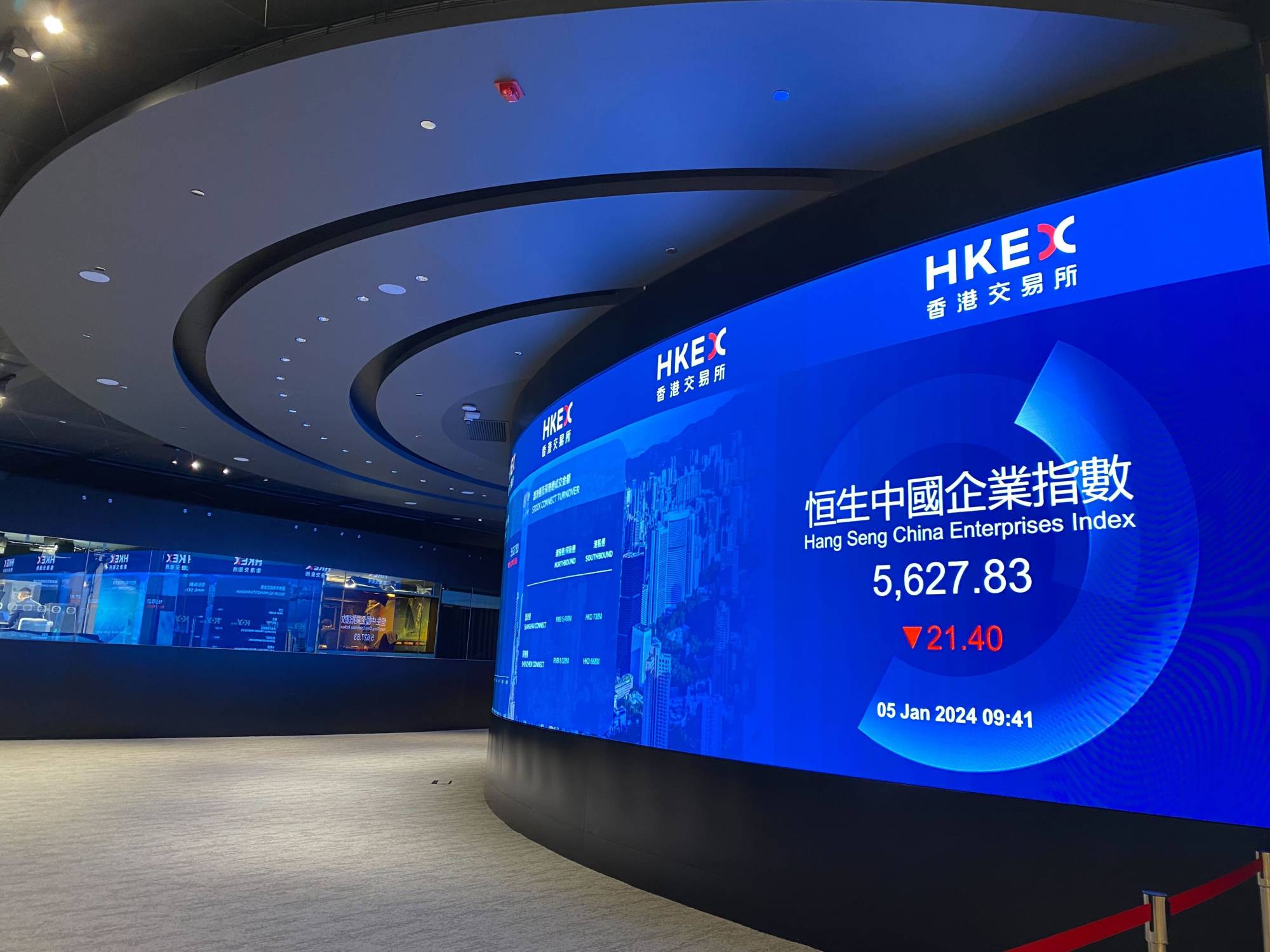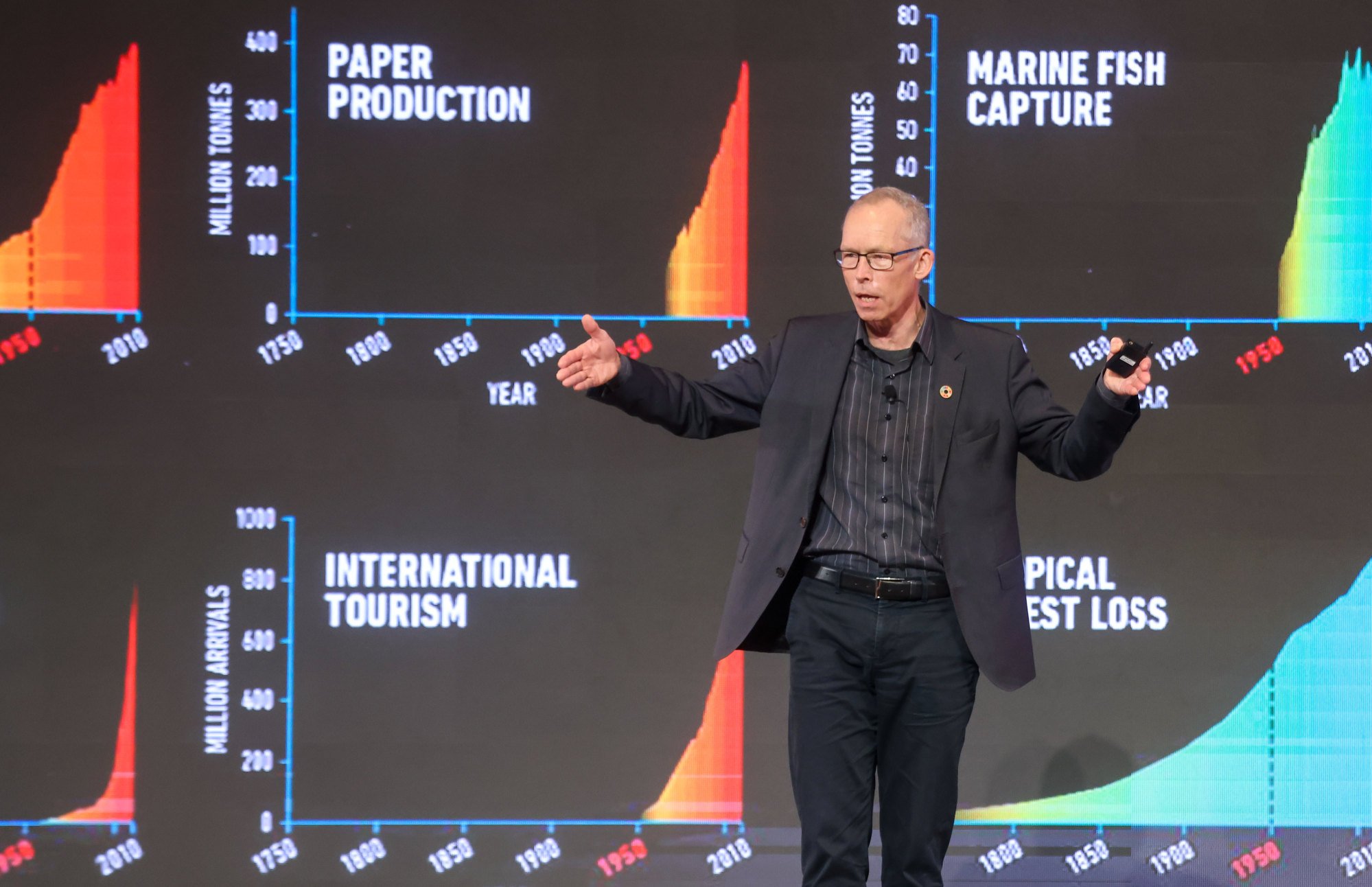
25 Mar One Earth Summit: Hong Kong aims to be among first to align with global ISSB sustainability disclosure standards
The government will develop “a holistic approach” that includes phased implementation of the disclosure requirements for “all financial services sub-sectors”, including listed companies, banks, fund managers, insurance companies and Mandatory Provident Fund trustees, Hui said.

The government will also facilitate the use of technology to improve data availability and support data collection and reporting, he added.
Transition finance seen as a crucial tool in the fight against climate change
Transition finance seen as a crucial tool in the fight against climate change
“These strengths, together with our fast rising prowess as an innovative and technology centre, make Hong Kong the ideal place for building partnerships for driving innovative solutions to promote sustainability,” he said.
“The Asia-Pacific region is responsible for over half of the world’s [greenhouse gas] emissions,” she said. “By fostering international partnerships we can unite global resources to drive the world’s net-zero transition.”

The world must gather together to accelerate climate actions or face disastrous consequences for generations to come, said Johan Rockstrom, director of Germany’s Potsdam Institute for Climate Impact Research.
“The scientific evidence is as simple as it is dire,” he warned. “Push the Earth system too far and we are at risk of causing disruptions to 16 climate-tipping biophysical systems we all depend on. There is more evidence that these tipping points are interconnected and can cascade.”
For example, accelerated melting of the Greenland ice sheets in the Arctic region, which is warming three times faster than the global average, has affected monsoon patterns and is causing droughts in the Amazon rainforests, he said. This in turn has led to warmer oceans in the southern regions, resulting in faster melting of the western Antarctica ice sheets.
Hong Kong’s One Earth Summit should be more than superficial talk on green deals
Hong Kong’s One Earth Summit should be more than superficial talk on green deals
The world must take the 2015 Paris Agreement’s ambition to limit global warming to 1.5 degrees Celsius seriously, as it is “not a political target … but a biophysical limit,” Rockstrom said.
The world needs US$3 trillion per year of funding from public and private sources to tackle climate change by reaching net-zero greenhouse gas emissions and to reverse nature loss and restore biodiversity by 2050, according to the World Economic Forum (WEF).

Asia, which accounts for half of global greenhouse-gas emissions and is home to 60 per cent of the youth population, will be a prime location for solutions and actions to tackle the climate crisis, said Gim Huay Neo, managing director of WEF’s Centre for Nature and Climate.
“This is a generation that has inherited the crisis and are hungry to find solutions,” she said. “They have the drive and creative capacities. Already Asia sets the pace for cutting-edge technologies.”
The world’s five biggest science and technology clusters are located in Asia, including Hong Kong-Shenzhen-Guangzhou, she said, citing last year’s ranking by the World Intellectual Property Organisation.
Climate disclosures: region needs more education, best practices exchange
Climate disclosures: region needs more education, best practices exchange
However, proper market mechanisms, financing instruments and partnerships will be needed for these technologies to scale up to meet the enormity and urgency of the crisis, she added.
Jim Coulter, founding partner of TPG Capital, said the world will see intensifying competition to scale up climate solutions such as electric transport, energy storage and renewable energy.
“I am beginning to see a new era of climate and impact investing on the ground,” he said. “For years we debated the idea of sustainability versus affordability. The Ukraine war, [Covid-19] pandemic and the US Inflation Reduction Act changed the entire discussion.” The Inflation Reduction Act legislation, passed in 2022, included the largest investment the US has ever made in clean energy and climate.

These developments have heightened global awareness of energy and resource security, spawning battles on industrial policies to scale up electric vehicles, batteries and solar and wind energy technologies that will create opportunities and drive innovations, Coulter said.
“In the past decade, solar went from nine times more expensive to cheaper, wind from four times more costly to cheaper and electric vehicles are now the cheapest form of transport,” he said. “Businesses began to act where the numbers worked … Clean energy spending has surpassed fossil-fuels spending.”
